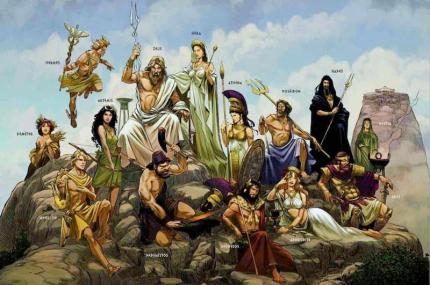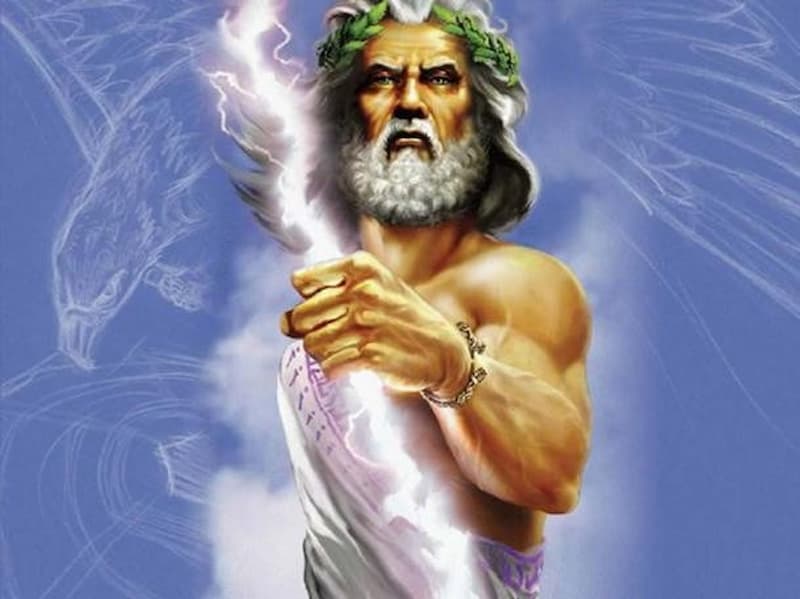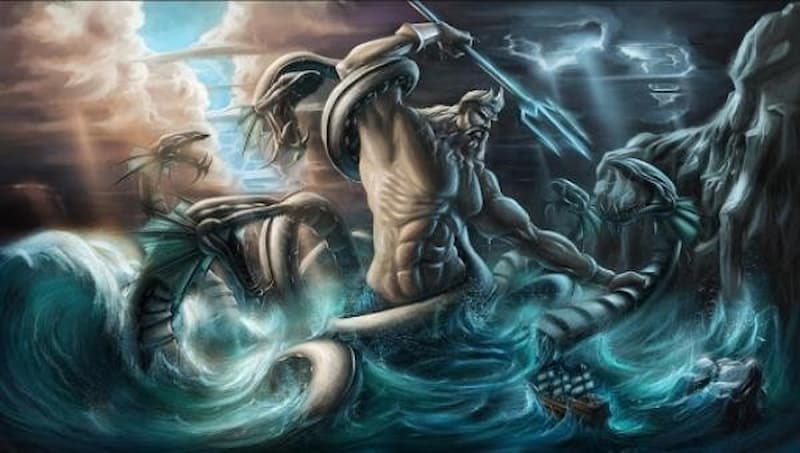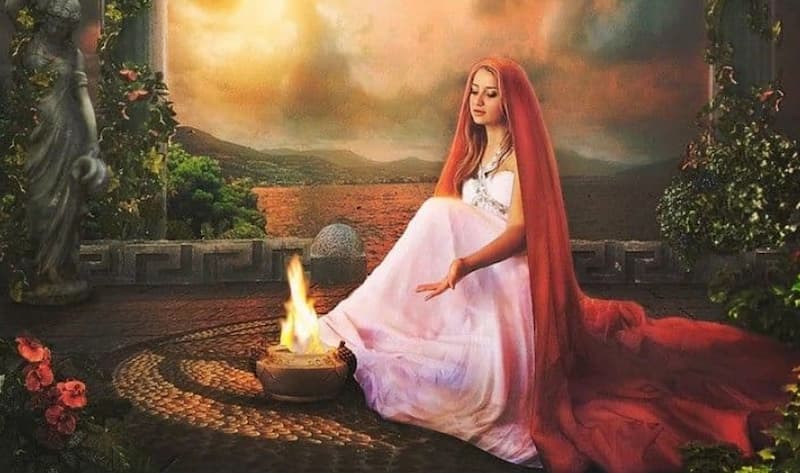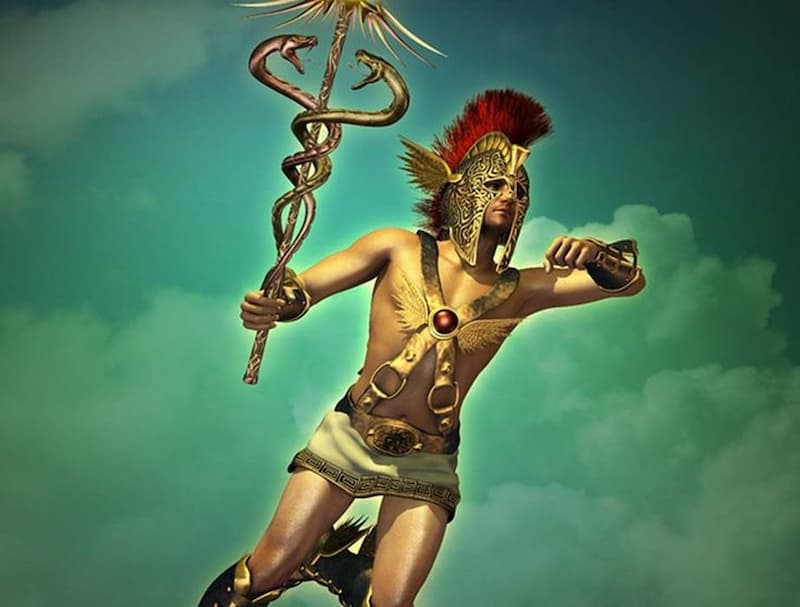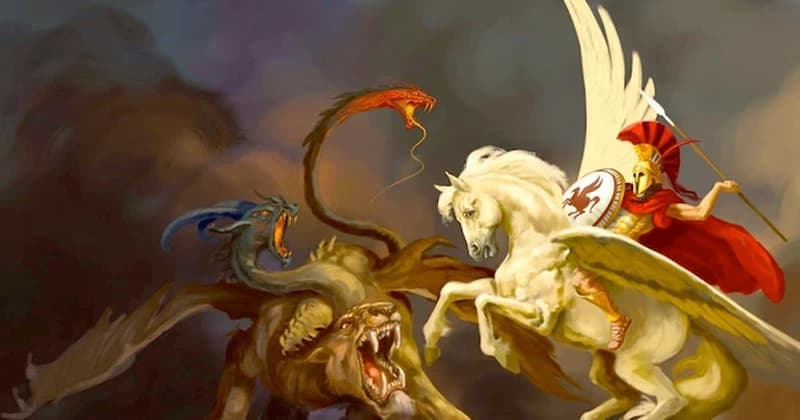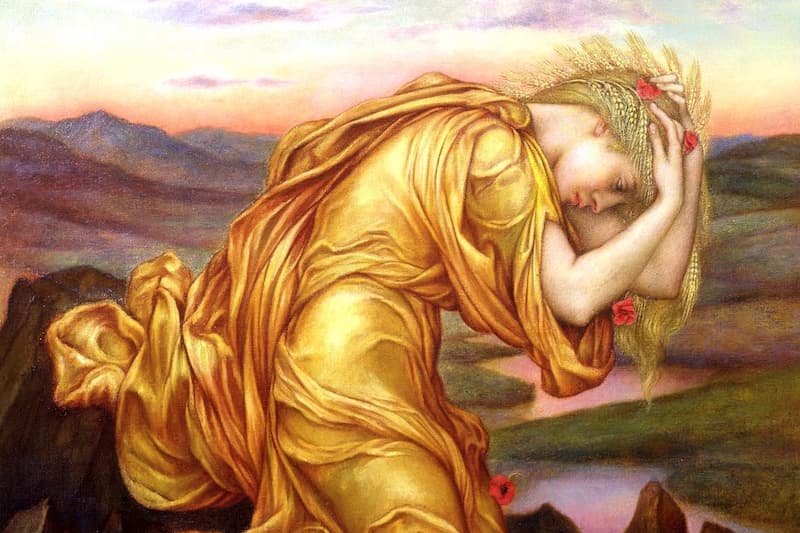Get free consultation
Fill out the form and we will contact you
Hy Lạp Ancient Greece is considered a flourishing era with the rise of many empires, marking a great transformation in human civilization. The Greek gods not only created a sense of mystery in the culture, beliefs, and faith of the people but also had a profound influence on life and art. Learn more about the names of the most famous Greek gods in the following article.
According to historical records, since ancient Greece there have been twelve gods who possessed extraordinary powers and divine abilities. They were heroic figures with innate gifts, believed to help humankind and bring many blessings. The twelve Greek gods symbolized natural forces and aspects of human life, including:
Let us review the history of the Greek gods to better understand their origins and how they came into being:
Zeus is regarded as the supreme god, the ruler and leader of the deities on Mount Olympus. He fathered many heroes and became a powerful symbol in Greek culture and religion. As the son of Cronus and Rhea, Zeus overthrew his father to claim dominion over the sky, thunder, justice, and order.
Zeus, the almighty god
Hades is known as the god of the underworld, the eldest son of Cronus and Rhea, and the brother of Zeus and Poseidon. With his dominion over the underworld, the earth, and the realm of the dead, Hades is often mistaken for the god of death.
Apollo represents truth, light, and the arts. He is often depicted as a young man with golden hair, carrying a lyre and a silver bow. Known for his relationships with both mortals and gods, Apollo had several same-sex lovers in Greek mythology. After the death of Hyacinth, he created a fragrance in remembrance, and his tears stained the petals of the flower.
Hera, the goddess of marriage, was both the sister and wife of Zeus, the supreme god, and wielded her authority as the queen of Olympus. Hera was known for her jealousy and anger toward Zeus’s many lovers. She had four children: Ares, Hebe, Eileithyia, and Hephaestus.
Neptune, also known as Poseidon, was one of the Greek gods dwelling on Mount Olympus, revered as the god of the sea and the shaker of the earth. He is often portrayed as an older man with curly hair and a silver beard, holding a mighty trident. Neptune’s power extended over the oceans, earthquakes, and horses, and his temper was notoriously unpredictable and destructive.
Poseidon – god of the sea with the power to rule the oceans
Athena embodies wisdom, skill in crafts, and mastery in warfare. She was revered as the protector of many city-states across Greece, where her intelligence and guidance inspired both artisans and warriors.
Artemis was the guardian of the hunt and the wilderness, ruling over untamed nature. She often roamed the forests of Greece, accompanied by a retinue of nymphs, mortals, and hunters who followed her.
Hephaestus was the patron of fire and craftsmanship, worshipped across Greece for his role in metalworking and industry. Though he married Aphrodite, his unattractive appearance and lameness caused her to be unfaithful, engaging in affairs with other gods and even mortals.
Hestia symbolized the sacred flame that united family and home life. She was admired for her noble character, devotion, and goodwill. Known for her talent, intelligence, beauty, and grace, Hestia was loved by both the gods and the people of Greece người dân yêu mến.
Hestia, the noble and gentle goddess
Aphrodite represents love, beauty, and desire, embodying the essence of perfect and enchanting allure that influenced both gods and mortals. Though married to Hephaestus, she fell in love with Ares, the god of war. Upon discovering their affair, Hephaestus crafted a fine yet unbreakable golden net to trap Aphrodite and Ares together.
Ares, the second son of Zeus and Hera, personifies war and the spirit of warriors, presiding over countless brutal battles. Because of his aggressive and ruthless nature, he was not beloved by his parents, as he regarded war as a necessity rather than a joy.
Hermes was the protector of thieves, shepherds, merchants, and scholars, while also serving as the divine messenger on Mount Olympus. He guided souls to the underworld and carried a staff with the power to send both mortals and gods into a deep, deathlike sleep.
Hermes, the protector of mortals
In Greek mythology, the gods were not only heroic figures but also faced terrifying monsters that represented fear, trials, and chaos. These creatures often became formidable adversaries in heroic quests, among the most famous being:
Medusa: Once a mortal woman, anyone who looked directly into her eyes would be turned to stone. Her hair was made of living snakes.
Cerberus - the three-headed hound of the underworld: Often depicted with snakes sprouting from its back or tail, Cerberus guarded the realm of Hades by preventing souls from escaping and the living from entering.
Minotaur - the bull-headed man: Born from the union of Pasiphae and a divine bull sent by Poseidon, the Minotaur was hidden away in a labyrinth built by Daedalus, as King Minos sought to conceal the shame of its birth.
Hydra - a serpent-like water monster with nine heads; whenever one head was cut off, two more would grow back in its place. It lived in the lake of Lerna and was dreaded by all.
Chimera - the three-bodied beast – A bizarre creature with the head of a lion, the body of a goat, and the tail of a serpent. Descended from Typhon and Echidna, it could breathe fire and wreak havoc upon its enemies.
Cyclops - A race of one-eyed giants with a single eye in the center of their forehead.
Scylla and Charybdis: Scylla was a sea monster with six serpent-like heads, lurking on rocky cliffs to devour sailors. Opposite her, Charybdis was a whirlpool that swallowed ships whole, making passage treacherous.
Sphinx - A monster with the head of a woman, the body of a lion, and the wings of a bird. She killed those who could not answer her riddle. When Oedipus solved her puzzle, the Sphinx took her own life.
Typhon: king of monsters, a colossal creature embodying primal chaos, who once challenged the gods of Olympus for supremacy
Echidna: the mother of monsters, a half-woman, half-serpent being, Echidna gave birth to many of Greece’s most infamous beasts, including Cerberus, Hydra, Chimera, Sphinx, and Scylla.
Monsters in Greek mythology
In the history of ancient Greece, several powerful goddesses were recorded as beings who ruled over the supernatural world and influenced the natural phenomena around them. Notable examples include:
Athena represents strategic intelligence, skill, and the art of wise warfare. She was the daughter of Zeus, born from his head, and became the protector of the city of Athens. Her symbols include the owl, armor, and the Aegis shield.
Artemis, the twin sister of Apollo, symbolizes the wilderness and purity of nature. She was revered as the protector of women in childbirth and of children. Her symbols include the bow and arrows, the deer, and the moon.
Born from sea foam, Aphrodite embodies love, desire, romance, and beauty. Her symbols are the dove, the mirror, roses, and the seashell.
Demeter was one of the major Greek goddesses, known as the mother of Persephone, the goddess of spring. She presided over harvests, crops, and nourishment. Her symbols include sheaves of wheat, grains, and the torch.
Demeter – one of the most prominent Greek goddesses
Daughter of Cronus and Rhea, Hestia embodied warmth and hospitality and was highly revered among the Olympian deities. Her sacred symbols were the flame and the hearth.
Hera, wife of Zeus, was the goddess of marriage, women, and childbirth. Her main symbols included the peacock, the crown, and the pomegranate.
Persephone, daughter of Demeter and wife of Hades, was closely linked to the cycle of the seasons in Greek mythology. Her symbols were the pomegranate and the narcissus flower.
One of the primordial deities, Nyx personified darkness and the unseen power of the night, commanding such awe that even Zeus respected her authority.
Gaia was the primordial goddess who gave birth to all life, including Uranus, the mountains, and the seas. She represented the very foundation of existence and the natural world.
Studying the ancient Greek deities provides a deeper understanding of the culture and people of this land. These myths, preserved through generations, offer insights into faith, spirituality, science, and art across different eras.
Today, Greece is a vibrant country renowned for its architectural wonders, artistic heritage, and historical legacy. It also offers attractive residency programs, including the Golden Visa, which encourage investment and provide opportunities for living, studying, and working. To learn more about Greece’s residency and investment policies, visit quoctichthuhai.com for free consultation and all-inclusive support.
Fill out the form and we will contact you
